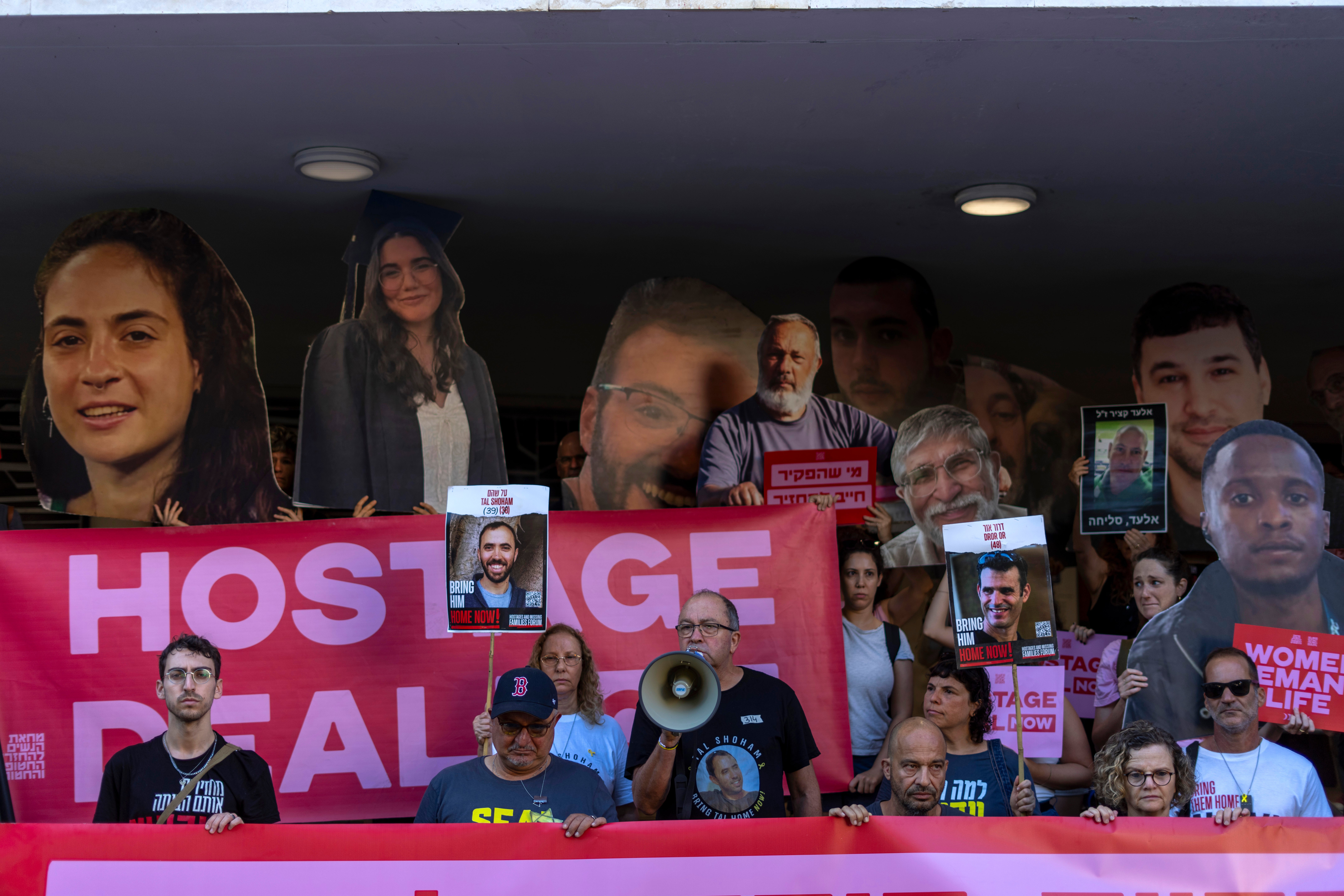Latest round of Gaza ceasefire talks under way, White House says
The talks are the latest effort to end the nearly year-long Israeli war against Hamas

Your support helps us to tell the story
From reproductive rights to climate change to Big Tech, The Independent is on the ground when the story is developing. Whether it's investigating the financials of Elon Musk's pro-Trump PAC or producing our latest documentary, 'The A Word', which shines a light on the American women fighting for reproductive rights, we know how important it is to parse out the facts from the messaging.
At such a critical moment in US history, we need reporters on the ground. Your donation allows us to keep sending journalists to speak to both sides of the story.
The Independent is trusted by Americans across the entire political spectrum. And unlike many other quality news outlets, we choose not to lock Americans out of our reporting and analysis with paywalls. We believe quality journalism should be available to everyone, paid for by those who can afford it.
Your support makes all the difference.American, Israeli, Egyptian and Qatari negotiators have convened in Doha, Qatar’s capital, for talks which the Biden administration hopes will finally lead to a ceasefire in the nearly year-old Israeli war against the militant group.
White House National Security Communications Adviser John Kirby told reporters on Thursday that the negotiations were “just starting” as of 10:20 am Eastern Time and suggested that they could continue through Friday.
Kirby also said the framework for a hostage and ceasefire deal proposed by the Biden administration has been “generally accepted” by all sides.
“Our team is, is hoping for some constructive talks here today ... we expect that those talks will continue into tomorrow,” he said. “Where the gaps are [is] in the execution of the deal, the individual muscle movements that go with putting the deal in place.”
The negotiations are the first such talks since Israel assassinated Ismail Haniyeh, the group’s political leader and lead negotiator, by way of a hidden bomb that exploded in a Tehran guest house where he was staying.
The White House spokesperson repeatedly declined to get into the details of what was being discussed at the Doha talks, citing a need to protect the integrity of the negotiations.
“The way negotiations work is that you start with some text on a piece of paper, and both sides work on that text. Usually both sides make amendments to that text, cycle it back around again. You have some more discussions about the amendments. That leads to even more discussions and on and on you go, and both sides have had the opportunity look at the texts that either side recommended and make amendments and changes and suggestions as negotiations pursued,” he said.
“And here we are today with essential framework being agreed to, and negotiating on on the details. So I’m just not going to get into the business of saying on this date, this person or this side added this or took that out or wanted to change that. This is the business of negotiating. And the last thing I’m going to do is prejudice that process by getting into the details.”
In the weeks since the assassination of Haniyeh, Hamas has named Yahya Sinwar, the leader of the group’s armed wing and the mastermind of the October 7 terror attacks that prompted the retaliatory Israeli war effort, as his replacement.
But Kirby said Sinwar, who is understood to be hiding somewhere in Gaza, will not directly participate in the talks.
He explained that mediators in Doha would have discussions, then mediators would communicate with Hamas leaders, who would in turn “communicate directly with Mr Sinwar for for final answers.”
“So the process that is playing out in Doha, very much, in keeping with the process that has played out in the past,” he said.
Join our commenting forum
Join thought-provoking conversations, follow other Independent readers and see their replies
Comments